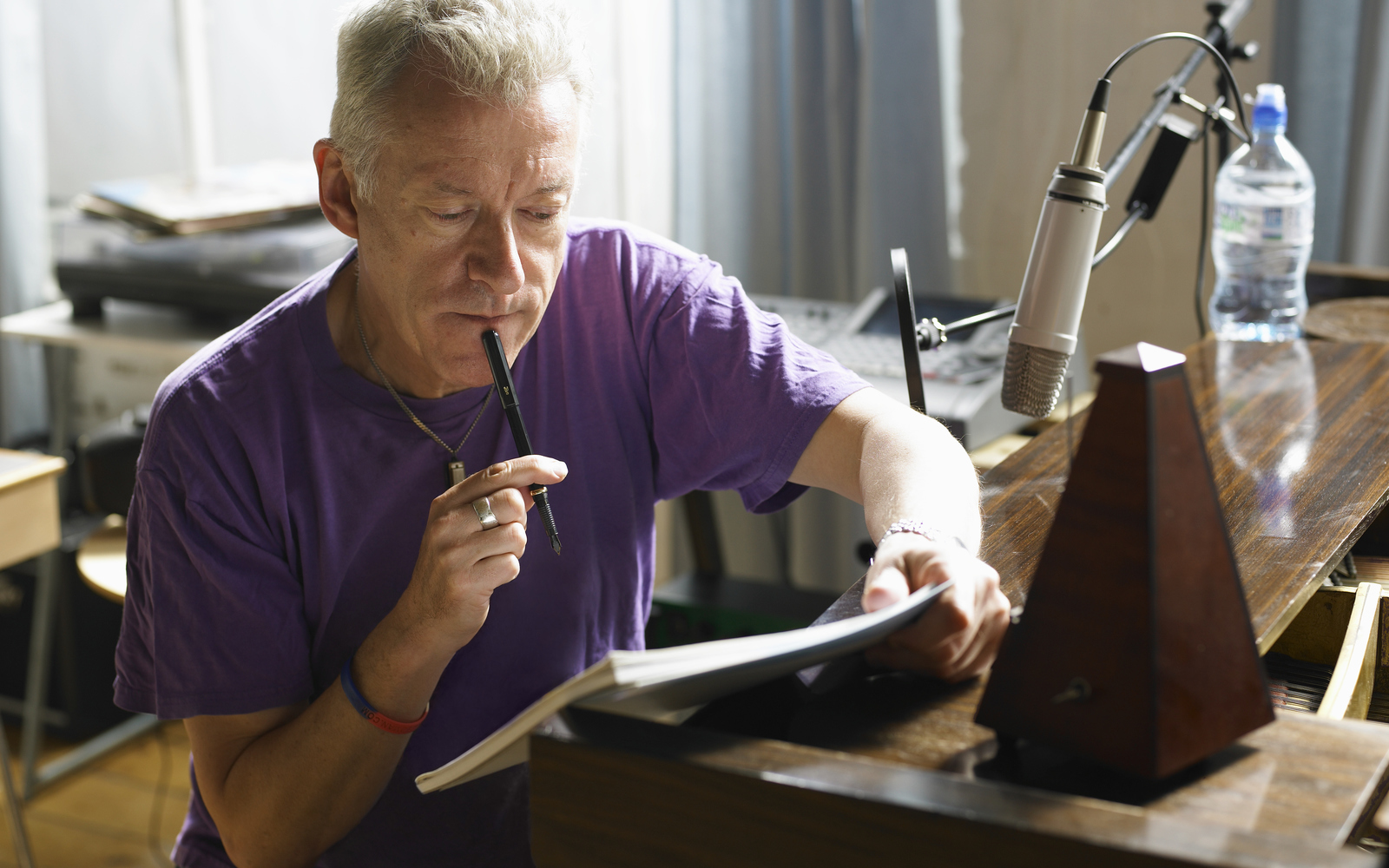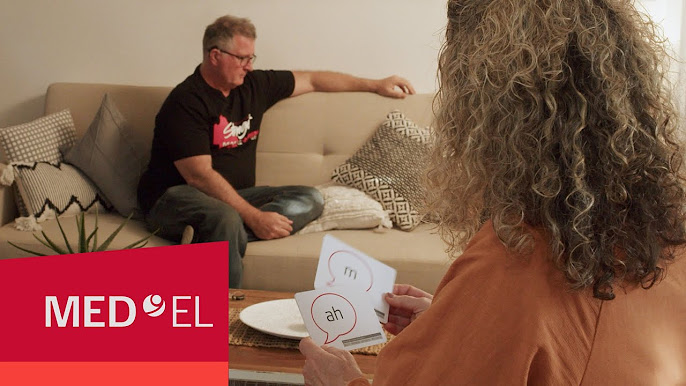
MED-EL
Published Jul 09, 2025 | Last Update Dec 09, 2025
Self-Training Listening Skills at Home With a Cochlear Implant
If you want to get the most out of your cochlear implant, practicing your listening skills at home is essential. From listening to music to using apps and videos, this article is filled with tips for self-training.

After getting cochlear implants, auditory rehabilitation at home is crucial. After many years of hearing loss, your brain needs time to adjust to the sounds you hear through your new implant. Rehabilitation that involves listening to sounds, music, and speech will develop your ability to understand more of what is said, ultimately reducing your reliance on lip reading and visual cues.
Two factors that can have a considerable impact on your rehabilitation journey are your motivation and regular listening practice with your devices. There are plenty of ways to self-train listening skills at home, even for adults who live alone.
What Is Auditory Rehabilitation?
Rehabilitation is the process of actively learning to make sense of what you hear with an implant. Routinely and consistently practicing listening skills can help provide faster and better improvement in hearing abilities. Rehabilitation includes:
- Relearning how to interpret sounds and speech.
- Improving clarity, speech recognition, and sound differentiation.
- Building confidence in real-world listening situations.
Setting Yourself Up for Success
- Create a quiet, distraction-free environment.
- Use headphones or direct audio input, if compatible.
- Set realistic goals for practice (e.g., 15–30 minutes a day).
- Be kind to yourself—there will be challenging days!

Practice Techniques for Solo Listeners
Read-Along Listening
- Listen to an audiobook while reading the text.
- Pause and repeat difficult sections.
- Listen to audiobooks with matching text such as Audible and Kindle.
- Use slow playback speed and gradually increase.
- Listen to podcasts with clear, slow speech such as Ted Talks Daily.
- Use live transcription speech-to-text apps to follow along and check understanding. Popular ones include Otter.ai or Google Live Transcribe.
- Watch familiar TV shows or movies with captions on, then rewatch with captions offto test comprehension.
Shadowing and Auditory Tracking
- Repeat what you hear immediately after hearing it to help improve speech rhythm and pronunciation.
- Listen to a short story or news clip and summarize it out loud. Try recalling specific details like names, numbers, and places.
Environmental & Speech Sound Identification
- Listen to sounds around the house (e.g., microwave beeps, doorbells).
- Begin with words of varying lengths and syllable number (e.g., cup, pencil, microwave).
- Advance to using minimal pairs which are words with only one sound different (e.g., “bat” vs. “sat,” “moth” vs “math,” or “bill” vs “bit”) to practice distinguishing similar sounds.

Music
- Listen to simple instrumental music such as piano or guitar.
- When there is a singer, read the song lyrics as you listen.
- Try to identify different instruments or beats within a song.
- Listen to different genres of music to find the ones you like.
- Use a music training platform such as Meludia—get free access via your myMED-EL account.
Self-Recording
- Record yourself reading aloud. Compare your recording with the original audio to improve clarity and pronunciation.
- Use voice assistants like Siri, Alexa, or Google Assistant to practice understanding spoken commands.
- Record yourself leaving a voicemail and play it back to assess clarity.
Staying Motivated and Tracking Progress
- Keep a listening journal to note improvements and challenges.
- Celebrate small wins (e.g., understanding a full sentence without captions).
- Join online support groups or forums (e.g., MED-EL Hearpeers).
- Use a checklist to track your progress.
Free Rehab Checklist
Use our checklist to remind yourself of rehabilitation exercises you can do at home and track your progress.
Download Your Free Checklist
“Keep a diary. Documenting your progress can be incredibly rewarding. I kept one for six months and shared it with my CI clinic. I wish I’d made a copy!”
Colin
Cochlear implant user
Free Tools and Resources for Self-Training
The ReDi App
ReDi is an easy-to-use rehabilitation app designed to help users of hearing technology practice their auditory and speech skills.
The app’s intuitive design lets you start training immediately and perform the exercises independently. Just download the app and sign in with a free myMED-EL account.
Rehab at Home for Adults (MED-EL YouTube)
The Rehab at Home for Adults series shows how you can complete simple auditory exercises at home. Across thirteen short videos, you’ll get to know four CI recipients, hear about their experiences, and learn how they work towards achieving different everyday listening goals.
Your Journey, Your Pace
Auditory rehabilitation after receiving a cochlear implant is a journey, not a race. Progress may come in small steps some days, and that’s perfectly okay. What matters most is consistency, curiosity, and self-compassion. Celebrate your wins, learn from the challenges, and remember that every sound you recognize is a step forward.
At MED-EL, we’re here to support you every step of the way. Our cochlear implant rehabilitation department offers tailored resources for each stage of your hearing journey. Whether you’re at home, out and about with friends, or at work, you’ll find practical tips and tools to help you build confidence and reconnect with the world of sound.
References

MED-EL
Was this article helpful?
Thanks for your feedback.
Sign up for newsletter below for more.
Thanks for your feedback.
Please leave your message below.
Thanks for your message. We will reply as soon as possible.
Send us a message
Field is required
John Doe
Field is required
name@mail.com
Field is required
What do you think?
© MED-EL Medical Electronics. All rights reserved. The content on this website is for general informational purposes only and should not be taken as medical advice. Contact your doctor or hearing specialist to learn what type of hearing solution suits your specific needs. Not all products, features, or indications are approved in all countries.
Eugene Antrhony Pulaski
July 10, 2025
My implants are about one to two years old and I still do not understand the pitch of my wife's voice. The people at the office have tried different adjustments but to no avail. I have given up trying to hear her and she gets real mad at me and starts to yell. Any other comments from other users with this problem?
MED-EL
July 14, 2025
Hi Eugene, thank you for your message. We suggest contacting your local MED-EL team about your issue so they can also talk with your audiologist if necessary. You can contact them via this form: https://www.medel.com/contact-med-el. Also, you can read other users' experiences on our Hearpeers forum here: https://forum.hearpeers.com/. Kind Regards, Giulia

MED-EL

MED-EL




Conversation
1 Comment